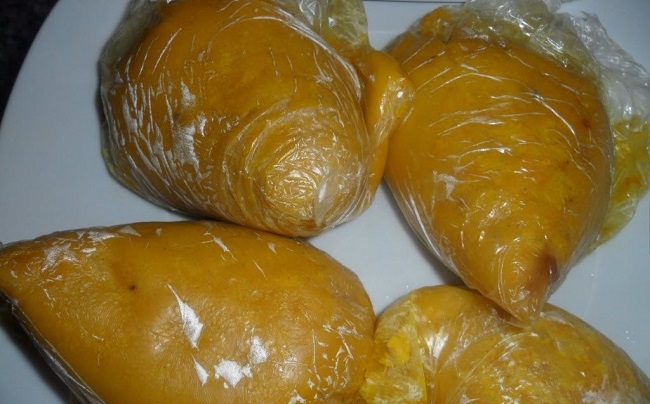An ecologist, Mrs Nnenna Didigu, says hot foods packaged in polythene bags are harmful to human health because they are usually contaminated with the chemicals used in producing the bags.

Didigu, the Executive Director, Developing Communities for Sustainability Organisation, an NGO, told the News Agency of Nigeria (NAN) in Abuja on Monday, January 21, 2019.
“Prolific use of polythene bags for packaging hot food items is not only harmful to the people but also to our environment.
“There are various chemicals disseminated from plastic bags like polyvinyl chloride.
“Hot foods packaged in polythene bags are contaminated by these chemicals mostly when they are hot or heated.
“Those chemicals include styrene and bisphenol-A which can cause cancer, heart diseases and harm the reproductive problems,’’ she said.
According to her, the number of people suffering from kidney and throat ailments, cancer and infertility is on the increase in the country.
“The rise in such cases is attributed largely to people eating hot food items carried in polythene or plastic bags.
“When hot food is packed in polythene and plastics, chemical exchange between plastic and food is maximised by high temperature and the nature of the food.
“There have been cases of environmental pollution as a result of used non-degradable polythene materials littered over the places, especially in city centres,’’ Didigu said.
Didigu said that some experts in the health sector revealed that beans meal or “moi-moi’’ wrapped in polythene bag is poisonous.
“Because the bag contains large dosage of dioxins that do not naturally exist in the traditional leaves that was hitherto used in wrapping the beans meal.
“Added to this is the consumption of sachet water exposed to sun at over 280C is poisonous and as such has resulted in many cases of kidney and liver failures among Nigerians,’’ she said.
The executive director said that unfortunately, most people consumed foods that were packaged with plastics.
“Plastic plays a part in every phase of food production and preparation.
“Food gets processed on plastic equipment and packaged and shipped in plastic lined boxes and cans.
“At home, we store and reheat leftovers in plastic containers,’’ she said.
According to her, government should intensify efforts to control the problem and conduct awareness programmes against the use of polythene bags for hot food items.
She said that government should adopt best practices of disposal of polythene bags and other plastic materials.
“This can be done through strategic engagements with civil society organisations and non-governmental organisations whose mandate is on sustainable environmental practices and community development,’’ she said.
By Deji Abdulwahab
